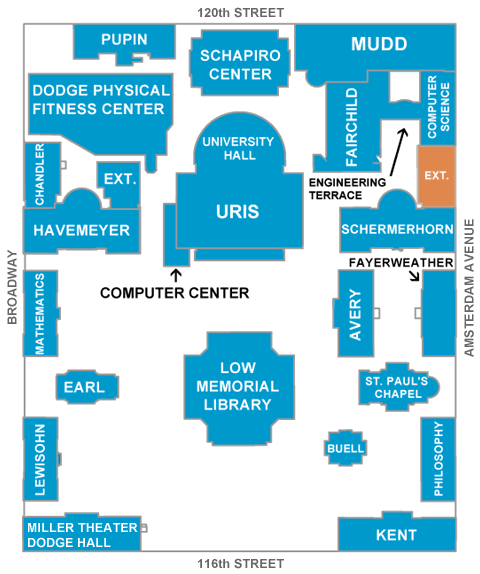Mission
E3B’s mission is to educate a new generation of scientists and practitioners in the theory and methods of ecology, evolution, and environmental biology. Our educational programs emphasize a multidisciplinary perspective to understand life on Earth from the level of organisms to global processes that sustain humanity and all life.
To achieve this multi-disciplinary perspective, the department maintains close ties to over 40 faculty members beyond its central core. Thus many faculty members who teach, advise, and train students in research are based in other departments on the Columbia campus, or at the partner institutions (including the American Museum of Natural History, the New York Botanical Garden, the Wildlife Conservation Society, and the EcoHealth Alliance). Through this collaboration, the department is able to tap into a broad array of scientific and intellectual resources in the greater New York City area.
History
The Department of Ecology, Evolution, and Environmental Biology (E3B) at Columbia University was established in 2001. In creating E3B, the university recognized that the fields of ecology, evolutionary biology, and environmental biology constitute a distinct subdivision of the biological sciences with its own set of intellectual foci, theoretical foundations, scales of analysis, and methodologies.
The E3B community offers academic excellence in a range of natural and social science disciplines that are directly related to biodiversity conservation including: evolution, systematics, genetics, behavioral ecology, public health, business, economics, political science, anthropology, and public and international policy.
Department Personnel
Department Chair:
Director of Administration and Finance:
Grants Manager:
Program and Communications Manager:
Financial Coordinator:
Director of Graduate Studies:
Director of Undergraduate Studies:
Matthew Palmer -Program Advisor for Environmental Biology Undergrad major
Jill Shapiro – Program Advisor for Evolutionary Biology of the Human Species Undergrad major
M.A. Program Director:
Post-baccalaureate Program Advisor:
Departmental Statement on Ethics of Research and Stewardship of Human and Non-Human Skeletal Remains
The Department of Ecology, Evolution and Environmental Biology at Columbia University is committed to the ethical pursuit of knowledge, and the responsible stewardship of that which is entrusted to our custodial care including human and non-human skeletal remains.
To that end, in concert with the Department of Anthropology (the original custodians of these remains) we are engaged in an ongoing process of identifying and inventorying remains on site, consulting with relevant professional and cultural organizations and authorities to determine provenance, and working to ensure the well-being and, where appropriate, repatriation.
We are guided in our efforts by the Native American Graves Protection and Repatriation Act (NAGPRA), and by international treaties, professional protocols, and our own commitments to just and responsible research practice.
Click HERE for more information.
Maps & Directions
Department of Ecology, Evolution and Environmental Biology
The main offices are located on the 10th floor in Schermerhorn Extension. To find us, locate the Schermerhorn building on the Columbia University Morningside Campus. Enter through the main entrance on the south side of the building. Turn right in front of the elevator. Follow the corridor (left, right, and left again) and you will come to another pair of elevators – you are now in Schermerhorn Extension. Take the elevator to the 10th floor. Welcome!
Maps & Links
American Museum of Natural History
Wildlife Conservation Society – Bronx Zoo
Wildlife Conservation Society – New York Aquarium



